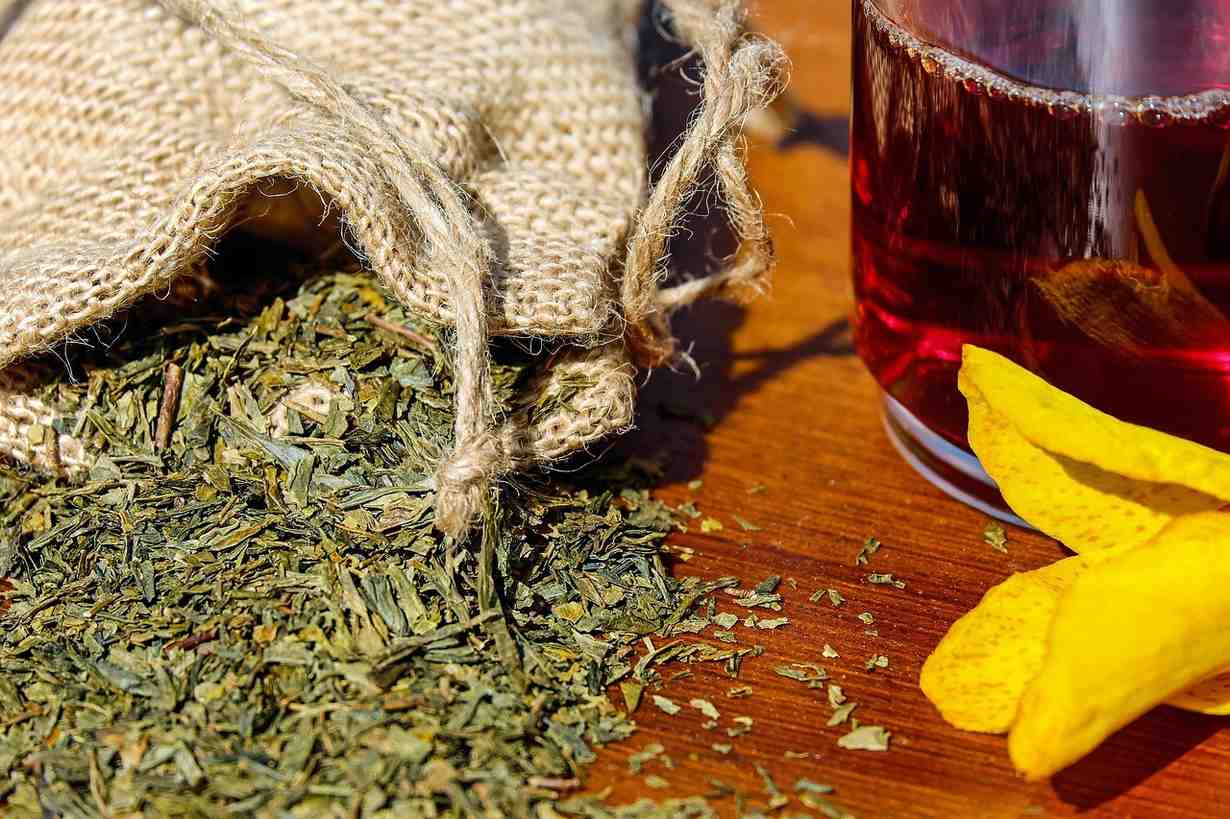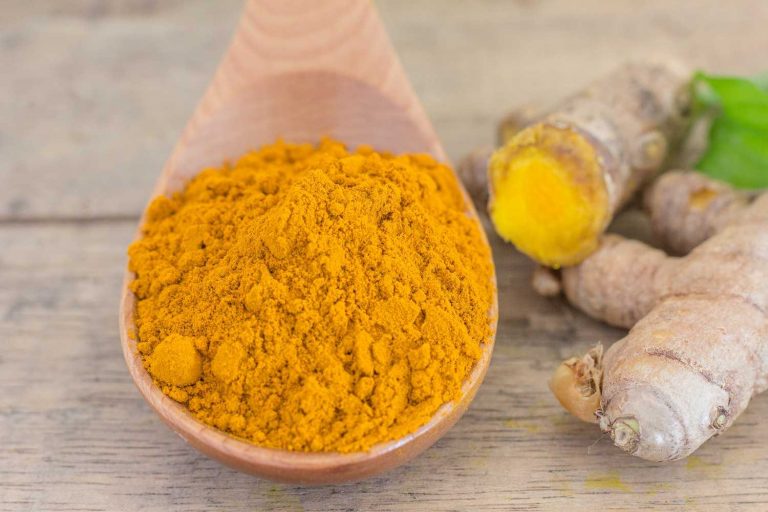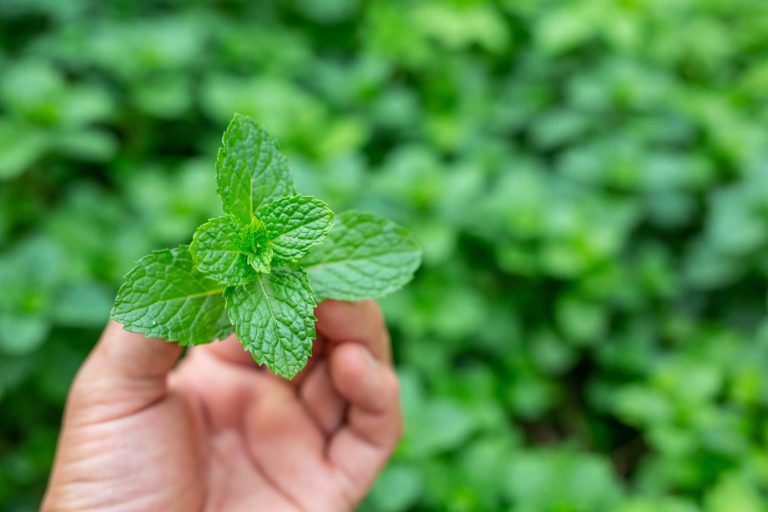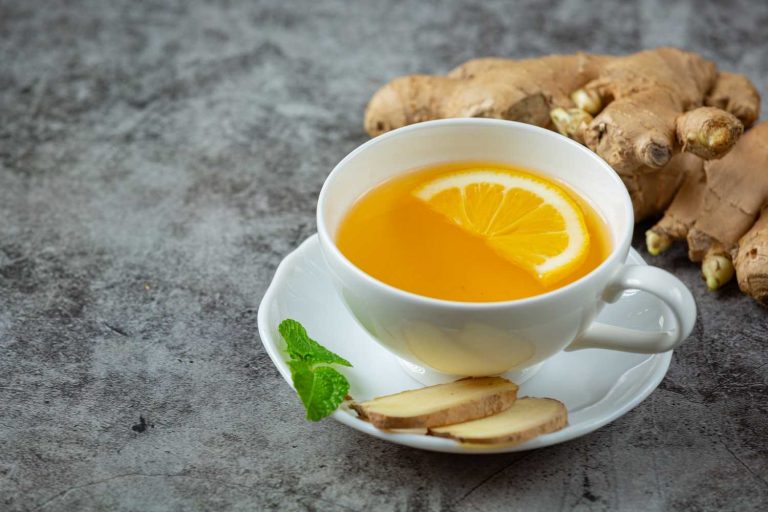Contents
5 Soothing Teas to Alleviate Tinnitus Symptoms
Did you know that around 15% of adults experience some degree of tinnitus at some point in their lives? For many, it’s just a fleeting annoyance, but for others, it can become a persistent and frustrating condition. Tinnitus, often described as ringing, buzzing, or hissing in the ears, can affect concentration, sleep, and overall quality of life. While there’s no definitive cure, many people are turning to natural remedies—like soothing teas—to help manage their symptoms. So, let’s dive into five calming teas that might offer some relief.
1. Turmeric Tea
Why It Helps:
Turmeric, with its active compound curcumin, is known for its anti-inflammatory properties. Some studies suggest that inflammation may play a role in tinnitus, so reducing inflammation could potentially alleviate symptoms (Nehra et al., 2021).
How to Prepare:
- Ingredients: 1 teaspoon of turmeric powder, 1 cup of water, honey (optional), and lemon (optional).
- Instructions: Boil the water and add turmeric. Let it steep for about 10 minutes. Strain and add honey or lemon to taste.
Pros:
- Natural anti-inflammatory.
- Easy to make.
- Can be enjoyed hot or cold.
Cons:
- Some people find the taste strong.
- May cause stomach upset in high doses.
2. Ginger Tea
Why It Helps:
Ginger is another powerhouse with anti-inflammatory and antioxidant properties. Some research suggests that ginger may help with blood circulation, which is crucial for ear health (Liu et al., 2019). Improved circulation could potentially ease tinnitus symptoms.
How to Prepare:
- Ingredients: 1-inch piece of fresh ginger, 1 cup of water, honey (optional).
- Instructions: Peel and slice the ginger. Boil it in water for 10-15 minutes. Strain and sweeten if desired.
Pros:
- Pleasant, spicy flavor.
- Can be enjoyed fresh or dried.
Cons:
- Might not be suitable for those with certain gastrointestinal issues.
3. Chamomile Tea
Why It Helps:
Chamomile is widely recognized for its calming effects, which can be particularly beneficial for those whose tinnitus symptoms are exacerbated by stress or anxiety. A study highlighted that chamomile can improve sleep quality, which is often disrupted by tinnitus (Zick et al., 2011).
How to Prepare:
- Ingredients: 2 chamomile tea bags or 2 teaspoons of dried chamomile flowers, 1 cup of boiling water.
- Instructions: Steep the tea bags or flowers in boiling water for about 5 minutes.
Pros:
- Calming and soothing.
- Excellent before bedtime.
Cons:
- Allergic reactions in some individuals, especially those allergic to ragweed.
4. Peppermint Tea
Why It Helps:
Peppermint is known for its refreshing taste and cooling sensation. It may help relieve tension and promote relaxation, which can be beneficial for managing tinnitus symptoms. Moreover, its menthol content can aid in alleviating headaches that sometimes accompany tinnitus (Mikaili et al., 2013).
How to Prepare:
- Ingredients: A handful of fresh peppermint leaves or 1 peppermint tea bag, 1 cup of boiling water.
- Instructions: Steep the leaves or tea bag in boiling water for about 5-10 minutes.
Pros:
- Refreshing flavor.
- Can help with headaches.
Cons:
- Not everyone enjoys the menthol taste.
5. Green Tea
Why It Helps:
Green tea is rich in antioxidants, particularly catechins, which can help combat oxidative stress. Some studies suggest that oxidative stress may contribute to tinnitus (Kumar et al., 2018). Drinking green tea might help improve overall ear health and possibly reduce tinnitus symptoms.
How to Prepare:
- Ingredients: 1 green tea bag or 1 teaspoon of loose green tea leaves, 1 cup of hot water.
- Instructions: Steep the tea in hot water for about 3-5 minutes.
Pros:
- Health benefits beyond tinnitus.
- Can be enjoyed hot or iced.
Cons:
- Contains caffeine, which may not be suitable for everyone.
FAQs About Tinnitus and Tea
1. Can tea really help with tinnitus?
While many people find comfort in herbal teas, scientific evidence is limited. However, some teas have properties that may help reduce inflammation and promote relaxation, which can alleviate symptoms for some individuals.
2. How often should I drink these teas?
There’s no one-size-fits-all answer. Generally, 1-3 cups of these teas daily can be beneficial. Just listen to your body and adjust according to your comfort.
3. Are there any side effects?
Most herbal teas are safe for most people. However, if you have allergies or specific health conditions, consult your healthcare provider.
4. Can I combine these teas?
Absolutely! Many people enjoy blending different herbal teas for enhanced flavor and benefits. Just be mindful of the flavors and potential interactions.
Conclusion
Tinnitus can be a challenging condition to manage, but incorporating soothing teas into your daily routine may provide some relief. Whether it’s the anti-inflammatory properties of turmeric or the calming effects of chamomile, these natural remedies can be a comforting addition to your wellness toolkit. Remember, though, that while these teas can help, they’re not a substitute for professional medical advice. If you’re struggling with tinnitus, consider consulting a healthcare provider for tailored guidance.
This article is for educational purposes only and is not a substitute for professional medical advice. Always consult a qualified healthcare provider before making changes to your health routine.
References
-
Nehra, D., Gupta, S., & Kumar, A. (2021). Anti-inflammatory effects of curcumin in chronic diseases. Journal of Clinical Medicine, 10(14), 3107. https://www.mdpi.com/2077-0383/10/14/3107
-
Liu, Y., Zhang, J., & Zhang, X. (2019). The effects of ginger on blood circulation: A systematic review. Evidence-Based Complementary and Alternative Medicine, 2019. https://www.hindawi.com/journals/ecam/2019/4567816/
-
Zick, S. M., Wright, B. D., & Hurst, D. (2011). Chamomile extract improves sleep quality: A randomized, double-blind, placebo-controlled trial. Journal of Clinical Psychopharmacology, 31(4), 404-407. https://journals.lww.com/psychopharmacology/Abstract/2011/08000/Chamomile_Extract_Improves_Sleep_Quality__A.12.aspx
-
Mikaili, P., & Khaef, A. (2013). Peppermint: A review on its medicinal benefits. Journal of Medicinal Plants Research, 7(24), 1624-1630. https://academicjournals.org/journal/JMPR/article-abstract/4A8F5A223882
-
Kumar, S., & Kumar, A. (2018). Antioxidative effects of green tea in tinnitus: An overview. International Journal of Otolaryngology, 2018. https://www.hindawi.com/journals/ijoto/2018/9818960/
Get Your FREE Natural Health Guide!
Subscribe now and receive our exclusive ebook packed with natural health tips, practical wellness advice, and easy lifestyle changes, delivered straight to your inbox.




